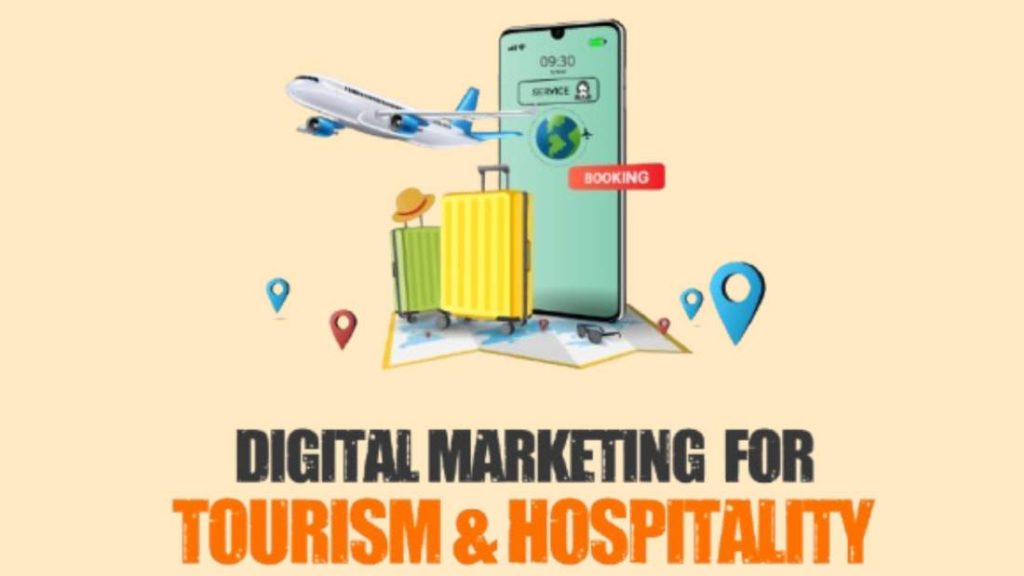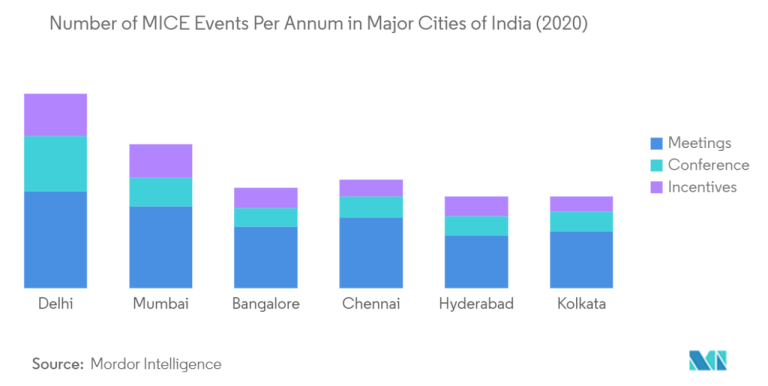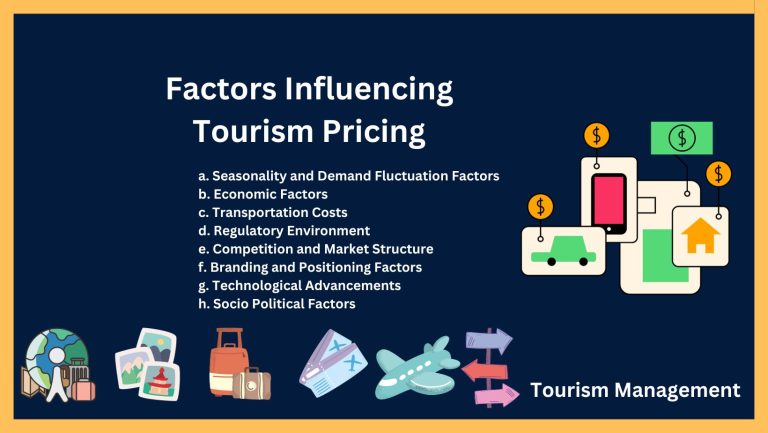Outbound Travel Agency A Comprehensive Guide
Travel agency outbound – Outbound travel agency, a vital component of the global travel industry, facilitates international journeys for travelers. This guide provides a deep dive into the world of outbound travel agencies, exploring their core functions, market trends, and strategies for success.
The document comprehensively examines outbound travel agency services, from individual tours to customized itineraries. It analyses the current market landscape, considering trends, popular destinations, and competitive dynamics. The importance of technology and digital marketing in the modern outbound agency is also explored. Furthermore, it delves into challenges and opportunities within the industry, highlighting successful strategies for thriving in a dynamic environment. Finally, various business models and successful case studies are presented to provide valuable insights into the industry’s best practices.
Defining Outbound Travel Agencies

Source: curlytales.com
Outbound travel agencies play a crucial role in facilitating international travel for residents of a particular country. They specialize in arranging travel experiences for people wishing to explore destinations outside their home country. This involves a range of services, from simple flight bookings to complex, multi-destination tours.
Outbound agencies distinguish themselves from other travel businesses through their focus on international travel. They possess in-depth knowledge of foreign destinations, visa requirements, and local customs, which often allows them to offer personalized and tailored travel arrangements. Their expertise in handling international logistics is a significant differentiator.
Services Offered by Outbound Travel Agencies
Outbound travel agencies provide a wide array of services to assist clients in planning and executing their international trips. These services typically encompass pre-trip consultation, booking flights and accommodations, arranging transportation within the destination, securing necessary visas, and providing comprehensive travel insurance. They also often offer assistance with currency exchange, translation services, and local guides, ensuring a smooth and enjoyable travel experience.
Types of Outbound Travel Arrangements
Outbound travel agencies cater to various travel preferences and needs, offering a diverse array of travel arrangements. These arrangements can be broadly categorized into different types, each tailored to specific client requirements.
| Type of Arrangement | Description |
|---|---|
| Individual Tours | Tailored itineraries for solo travelers or small groups, allowing for flexibility and customization according to individual interests and preferences. This often includes carefully selected activities, accommodations, and transportation options. |
| Group Tours | Pre-planned itineraries for a group of travelers, offering structured travel experiences with pre-determined schedules, accommodations, and activities. This approach typically provides a more cost-effective and organized travel experience. |
| Customized Itineraries | Highly personalized travel plans designed to meet the specific needs and preferences of individual clients or groups. These plans can incorporate unique activities, custom-selected accommodations, and personalized transportation arrangements. |
Market Analysis of Outbound Travel
Outbound travel, encompassing trips taken by residents of a country to destinations abroad, is a significant component of the global tourism industry. Understanding the current trends, driving factors, and regional preferences within this market is crucial for travel agencies to effectively cater to customer needs and maximize profitability. This analysis provides insights into the dynamics of the outbound travel sector.
Current Trends in the Outbound Travel Market
The outbound travel market is experiencing dynamic shifts, driven by evolving consumer preferences and technological advancements. A notable trend is the increasing popularity of experiential travel, where travelers seek authentic cultural immersion and unique experiences rather than simply sightseeing. Furthermore, sustainable and responsible tourism is gaining traction, with travelers actively seeking eco-friendly and socially conscious destinations. Budget-conscious travel remains a significant segment, particularly among younger travelers, leading to a rise in “value travel” options.
Factors Influencing Demand for Outbound Travel Services
Several factors influence the demand for outbound travel services. Economic conditions play a pivotal role, as fluctuating exchange rates and disposable incomes directly impact travel budgets. Technological advancements, such as user-friendly online booking platforms and mobile applications, have made travel planning more accessible and convenient, boosting demand. Furthermore, changing social norms, like increased flexibility in work arrangements, encourage more frequent and shorter-term trips. Safety and security concerns also influence travel decisions, with travelers carefully considering destinations based on perceived risks.
Geographic Regions and Destinations Most Popular with Outbound Travelers
The popularity of outbound travel destinations varies significantly across regions. In recent years, Southeast Asia, particularly Thailand, Vietnam, and Indonesia, has seen a surge in popularity due to affordable prices, rich cultural heritage, and beautiful landscapes. Similarly, destinations in Latin America, such as Mexico and the Caribbean, remain popular choices for their diverse offerings and vibrant atmosphere. Within Europe, destinations like Spain, Italy, and France continue to attract significant outbound tourist numbers.
Comparison of Outbound Travel Markets Across Countries
Outbound travel markets differ significantly across countries, influenced by factors like economic prosperity, cultural norms, and visa policies. For instance, countries with higher per capita incomes generally exhibit a greater propensity for outbound travel. Similarly, countries with streamlined visa processes and favorable exchange rates often see a higher volume of outbound tourists. Travel preferences also vary, with some countries prioritizing leisure travel, while others may focus more on business travel.
Market Segments Within the Outbound Travel Industry
The outbound travel industry comprises diverse market segments, each with specific needs and preferences.
| Market Segment | Description | Characteristics |
|---|---|---|
| Luxury Travelers | High-spending travelers seeking premium accommodations, exclusive experiences, and personalized services. | High disposable income, discerning tastes, focus on luxury and exclusivity. |
| Budget Travelers | Cost-conscious travelers seeking affordable options, including budget airlines, hostels, and local cuisine. | Limited budget, prioritize value, focus on budget-friendly travel experiences. |
| Family Travelers | Families traveling together often seek destinations with family-friendly attractions and activities. | Focus on family-friendly accommodations, activities, and entertainment options. |
| Adventure Travelers | Individuals seeking thrilling experiences, such as hiking, climbing, or exploring remote destinations. | Prioritize adventure, thrill, and unique experiences. |
| Cultural Travelers | Individuals seeking authentic cultural experiences, immersing themselves in local traditions and customs. | Prioritize cultural immersion, learning about local customs, and interaction with local communities. |
Services and Products Offered by Outbound Agencies
Outbound travel agencies play a crucial role in facilitating international travel experiences for individuals and groups. They act as intermediaries, connecting travelers with various destinations and services, offering a range of products and packages tailored to diverse needs and preferences.
Types of Travel Products and Services
Outbound agencies provide a wide array of travel products and services, going beyond simply booking flights and hotels. They offer comprehensive travel solutions, encompassing various aspects of the trip. These include, but are not limited to, flight arrangements, accommodation reservations, visa assistance, travel insurance, airport transfers, and pre-arranged activities at the destination. They often specialize in particular travel segments, such as luxury travel, adventure tourism, or family vacations.
Types of Tours and Packages
Outbound agencies curate diverse tour packages and itineraries to cater to different travel styles and budgets. These packages can range from structured, pre-planned tours to customizable options that allow travelers to personalize their experience. Some popular tour types include: cultural tours, adventure tours, family tours, and theme-based tours. Specific packages may combine elements like guided sightseeing, accommodation, and transportation. Moreover, many agencies offer tailor-made packages, enabling travelers to craft their ideal vacation by choosing specific destinations, activities, and durations.
Popular Destinations for Outbound Travelers
Outbound travelers frequently seek experiences in diverse locations around the globe. Popular destinations include: the European continent (e.g., Italy, France, Spain), Southeast Asian countries (e.g., Thailand, Vietnam, Indonesia), and North American cities (e.g., New York, Los Angeles). Specific regions or cities within these areas, such as the Amalfi Coast, the Greek Islands, or Tokyo, are highly sought after. Furthermore, destinations known for their unique cultural attractions, natural beauty, or adventure opportunities are frequently selected.
Factors Influencing Pricing of Outbound Travel Packages
Several key factors influence the pricing of outbound travel packages. These factors include the destination’s popularity, seasonality, accommodation choices, transportation costs, and the inclusion of activities. For instance, peak season travel to popular destinations tends to command higher prices due to increased demand. Similarly, luxury accommodations and premium tours will generally result in higher costs. The cost of flights, depending on the time of booking, is also a key factor in the final price.
Comparison of Outbound Travel Options
| Outbound Travel Option | Cost | Benefits |
|---|---|---|
| Budget-friendly Group Tour | Lower | Shared experiences, social interaction, cost-effectiveness, structured itinerary. |
| Luxury All-Inclusive Resort Package | Higher | High-end accommodations, personalized service, all-inclusive amenities, and potentially reduced stress. |
| Customizable Private Tour | Variable | Tailored experience, flexibility, freedom to design itinerary, potential for unique encounters. |
Technology and Digital Marketing Strategies for Outbound Agencies: Travel Agency Outbound
Outbound travel agencies are increasingly relying on technology and digital marketing to connect with clients and streamline operations. The digital landscape offers unparalleled opportunities for reaching a global clientele and building brand recognition. Adapting to these changes is crucial for success in the competitive travel industry.
Modern outbound travel agencies leverage technology to enhance client interaction, manage complex itineraries, and optimize operational efficiency. From booking platforms to customer relationship management (CRM) systems, technology provides a foundation for streamlined operations and improved customer service.
The Role of Technology in Modern Outbound Travel Agencies
Technology has fundamentally reshaped how outbound travel agencies operate. Sophisticated booking engines allow for real-time updates and seamless integration with various suppliers. This integration ensures accurate pricing, availability, and comprehensive travel arrangements for clients. Furthermore, advanced CRM systems facilitate targeted marketing campaigns and personalized client communication, enhancing the overall customer experience. These systems also assist in tracking customer preferences, facilitating future recommendations, and travel planning.
Importance of Digital Marketing Strategies for Reaching Outbound Clients

Digital marketing is essential for outbound travel agencies to reach potential clients effectively. Targeted online advertising, search engine optimization, and social media engagement strategies allow agencies to connect with travelers seeking tailored experiences. Agencies can leverage online platforms to build brand authority, showcase expertise, and establish trust with prospective clients.
Examples of Successful Digital Marketing Campaigns
Numerous outbound travel agencies have successfully employed digital marketing strategies. For instance, a travel agency specializing in adventure tours might use targeted Instagram campaigns showcasing stunning visuals and client testimonials to attract a younger demographic interested in unique experiences. Another agency focused on luxury travel could utilize a blog and high-quality video content to highlight exclusive destinations and services, appealing to a more discerning clientele.
How Outbound Agencies Use Online Platforms to Promote Their Services
Outbound agencies utilize various online platforms to showcase their offerings and engage with clients. Dedicated websites act as central hubs for information, showcasing destinations, itineraries, and booking options. Social media platforms like Facebook, Instagram, and TikTok are used for targeted advertising and engagement, promoting special offers and building brand awareness. Travel blogs, forums, and review sites are also used to build credibility and foster trust among potential customers.
Online Marketing Tools and Techniques
Outbound agencies employ a range of online marketing tools and techniques to connect with clients. This strategic approach ensures their message reaches the intended audience.
| Tool/Technique | Description |
|---|---|
| Search Engine Optimization () | Optimizing website content and structure to improve organic search rankings. |
| Pay-Per-Click (PPC) Advertising | Running targeted ads on search engines and social media platforms. |
| Social Media Marketing | Engaging with potential clients through social media platforms. |
| Email Marketing | Building and nurturing email lists to communicate with clients. |
| Content Marketing | Creating valuable content like blog posts, articles, and videos to attract and engage potential clients. |
| Online Travel Agencies (OTAs) Partnerships | Collaborating with online travel agencies to expand reach and access to a wider customer base. |
| Influencer Marketing | Partnering with travel influencers to promote destinations and services to their followers. |
| Video Marketing | Creating engaging video content to showcase destinations, services, and customer testimonials. |
Challenges and Opportunities in the Outbound Travel Industry
The outbound travel sector, while offering immense potential, faces a complex interplay of challenges and opportunities. Globalization, evolving consumer preferences, and geopolitical shifts are all contributing factors in shaping the future of this dynamic market. Outbound travel agencies must adapt and innovate to thrive in this evolving landscape.
Key Challenges Faced by Outbound Travel Agencies
Outbound travel agencies grapple with several significant hurdles. Competition from both established players and new entrants, coupled with the ever-increasing demands of discerning travelers, presents a constant pressure to innovate and offer exceptional value. The volatile nature of global events and economic fluctuations can also impact travel plans and agency profitability.
- Increased Competition: The rise of online travel agencies (OTAs) and the proliferation of independent travel planners has intensified competition for outbound travel agencies. This necessitates a strategic focus on unique selling propositions (USPs) to attract and retain customers. For example, niche travel agencies specializing in adventure tourism or cultural experiences are finding success in catering to specific segments of the market.
- Economic Volatility: Fluctuations in exchange rates, global economic downturns, and political instability can severely impact outbound travel demand. Agencies must develop strategies to mitigate these risks, such as offering flexible booking options and actively monitoring market trends.
- Maintaining Profitability: High operating costs, particularly in marketing and customer service, can pose a challenge for outbound travel agencies. Agencies need to optimize their operational processes and implement efficient cost-saving measures while still providing a premium customer experience.
Potential Opportunities in the Outbound Travel Sector
The outbound travel industry offers several compelling opportunities for growth and innovation. Emerging markets, a rising middle class globally, and a growing desire for personalized travel experiences are creating new avenues for agencies to flourish. Leveraging technology to enhance the customer journey and tailor travel offerings is key to capturing this expanding market.
- Expansion into Emerging Markets: Growth in emerging economies creates a substantial opportunity for outbound travel agencies. These markets offer untapped potential for travel experiences and demand customized tours, showcasing the diversity of global destinations.
- Focus on Niche Travel: Catering to specific interests, such as adventure travel, cultural immersion, or wellness retreats, can establish a strong market position for agencies. This niche approach allows agencies to target specific customer segments and develop highly personalized travel packages.
- Leveraging Technology: Implementing advanced technologies, such as AI-powered chatbots and personalized recommendations, can streamline operations and enhance the customer experience. This technology integration can reduce manual tasks and improve overall agency efficiency.
Impact of Global Events on Outbound Travel Trends
Global events, such as pandemics, geopolitical tensions, and natural disasters, significantly impact outbound travel trends. Agencies must adapt their strategies to the changing landscape, potentially pivoting to alternative destinations or offering flexible booking options. For example, the COVID-19 pandemic prompted many agencies to focus on domestic travel and safety measures, but the effects were felt globally.
Successful Strategies to Overcome Challenges, Travel agency outbound
Agencies can overcome challenges by embracing innovative strategies, such as building strong partnerships with local tour operators, developing customized travel packages, and focusing on exceptional customer service. Maintaining a strong online presence through digital marketing and utilizing social media can help reach potential clients.
- Building Strong Partnerships: Collaboration with local tour operators in target destinations can enhance the travel experience and ensure smooth operations. This partnership fosters trust and creates a more authentic travel offering.
- Developing Customized Packages: Personalized travel packages cater to diverse customer needs and preferences, thereby differentiating agencies from competitors. This customization approach can be very effective in attracting a diverse range of clients.
- Prioritizing Customer Service: Excellent customer service is paramount in building trust and loyalty. Providing responsive and personalized support throughout the travel process is key to retaining customers and fostering positive word-of-mouth marketing.
Adapting to Changing Consumer Preferences
Consumer preferences are constantly evolving. Outbound travel agencies must adapt to these changes by offering diverse travel options, incorporating sustainable and ethical travel practices, and focusing on experiences over mere sightseeing. Understanding and catering to these evolving preferences is crucial for maintaining a competitive edge. For example, an increasing number of travelers seek eco-friendly travel options, and agencies that integrate sustainable practices into their itineraries will gain a significant advantage.
Outbound Travel Agency Business Models
Outbound travel agencies operate using diverse business models, each catering to specific needs and market segments. Understanding these models is crucial for agencies seeking to optimize their operations and achieve sustainable growth. This section delves into the prevalent models, highlighting their structures, services, and respective advantages and disadvantages.
Different Business Models
Outbound travel agencies adopt various models to serve clients effectively. These models vary significantly in their operational structures and the services they provide. Recognizing the differences is paramount for choosing the right model for an agency’s specific circumstances.
Commission-Based Model
This model is a traditional approach where agencies earn a commission on the services and products they sell. This commission is usually negotiated and is typically calculated as a percentage of the total cost. Travel agents earn revenue based on successful bookings, motivating them to provide comprehensive and personalized service to secure more clients. The commission model is straightforward and relies on efficient sales strategies. However, the income can be variable and depend on the number of bookings and the negotiated commission rates.
Fee-Based Model
In this model, agencies charge clients a fee for their services, which is often structured based on the complexity of the trip or the number of services provided. This fee-based model provides a more predictable income stream, offering greater financial stability compared to the commission-based model. The fee covers all services, from initial consultation to final booking confirmation. This model allows for more control over pricing and profitability. However, it can be perceived as more expensive by clients compared to the commission model.
Hybrid Model
This model combines elements of both the commission and fee-based models. Agencies may charge fees for certain services while earning commissions on others. This hybrid approach allows agencies to adapt their pricing strategy based on the services offered. Flexibility is a key advantage of this model, allowing agencies to cater to different client needs and preferences. However, this model can be more complex to manage, demanding a clear delineation of services and fees.
Technology-Based Model
This model leverages technology to streamline operations and provide services online. Agencies use online platforms, websites, and booking engines to interact with clients, manage bookings, and provide support. This model facilitates efficiency, reaching a broader market, and providing instant support. However, it requires significant investment in technology and expertise to ensure smooth operations and client satisfaction.
Table Summarizing Business Models
| Business Model | Structure | Services | Benefits | Drawbacks | Examples |
|---|---|---|---|---|---|
| Commission-Based | Agent-centric, commission on sales | Booking, travel planning, advice | Flexible income, client loyalty | Variable income, negotiation complexities | Many independent travel agents |
| Fee-Based | Service-centric, fixed fees | Personalized packages, comprehensive support | Predictable income, transparent pricing | Potentially higher costs for clients | Some large travel agencies |
| Hybrid | Combination of commission and fees | Flexible package design | Adaptable to client needs, diverse pricing | Complexity in pricing structures | Many agencies with varying packages |
| Technology-Based | Online platform, automated processes | Online booking, 24/7 support | Wider reach, streamlined operations | High initial investment, tech maintenance | Online travel agencies (OTAs) |
Illustrative Case Studies of Outbound Travel Agencies
Outbound travel agencies play a crucial role in connecting travelers with destinations worldwide. Understanding the strategies and successes of prominent agencies provides valuable insights into thriving in this dynamic market. This section delves into specific case studies, highlighting their approaches to attracting and retaining clients, and analyzing their impact on the outbound travel sector.
Successful outbound travel agencies often employ innovative strategies to stand out from competitors. They adapt to evolving customer preferences and leverage technology to streamline operations and enhance the customer experience. This case study exploration will demonstrate how these factors contribute to their market success.
Examples of Successful Outbound Travel Agencies
Outbound travel agencies vary in size and specialization, but successful agencies often share common traits. They prioritize customer satisfaction, adapt to market trends, and build strong relationships with suppliers.
- G Adventures: Known for its small group tours and adventure travel experiences, G Adventures emphasizes sustainable and immersive travel. Their marketing strategy focuses on adventure seekers and environmentally conscious travelers. They have a strong online presence, offering detailed trip information, user reviews, and interactive trip planning tools. G Adventures’ focus on sustainable tourism has resonated with a growing segment of environmentally conscious travelers, leading to a significant increase in bookings and market share. G Adventures’ business model combines direct bookings, online marketing, and partnerships with local guides and operators to offer a unique and personalized experience.
- Intrepid Travel: Another renowned adventure travel company, Intrepid Travel, offers a wide range of itineraries worldwide. They cater to budget-conscious travelers who seek authentic cultural experiences and adventure activities. Their emphasis on value-for-money and a community-based approach has built a loyal customer base. Intrepid Travel’s digital marketing strategies, particularly their focus on social media and user-generated content, have significantly increased brand awareness and attracted a younger demographic. Their business model is based on providing high-quality, affordable travel experiences, which has proven to be highly successful in attracting a broader customer base.
- Abercrombie & Kent: A luxury travel agency, Abercrombie & Kent focuses on bespoke itineraries for high-net-worth individuals. Their unique selling proposition is the curated, exclusive travel experiences they offer. They work closely with clients to create personalized travel plans, ensuring exceptional service and accommodations. They leverage their extensive network of global partners and local experts to deliver seamless and luxurious travel experiences. Abercrombie & Kent’s business model emphasizes personalized service, high-end accommodations, and premium travel experiences. Their focus on exceptional service and exclusivity has made them a preferred choice for affluent travelers seeking premium travel experiences.
Key Strategies and Business Models
Successful outbound travel agencies often adopt a multi-faceted approach. They recognize the need for flexibility and innovation in the industry.
- Adapting to Market Trends: Successful agencies constantly monitor market trends and customer preferences. They adapt their offerings and marketing strategies to cater to these changing demands, ensuring they remain relevant and competitive. This adaptability is crucial for long-term success in the ever-evolving travel market.
- Building Strong Supplier Relationships: Establishing strong relationships with local suppliers and operators is essential for providing high-quality services. These partnerships ensure access to exclusive experiences, competitive pricing, and reliable services. Agencies that cultivate strong supplier relationships can provide their clients with unique travel experiences.
- Utilizing Technology: Employing technology to streamline operations, enhance the customer experience, and improve efficiency is vital for modern travel agencies. They leverage digital tools for booking, communication, and customer support, enabling seamless travel planning and execution. This focus on technology is a key factor in providing a superior customer experience.
Impact on the Outbound Travel Market
The success of these agencies has had a considerable impact on the outbound travel market. They have introduced innovative travel options, creating new opportunities for travelers.
- Increased Awareness and Demand: Agencies have increased awareness of various destinations, creating demand for specific travel experiences. Their marketing efforts have highlighted destinations and experiences, driving interest among potential travelers.
- New Travel Opportunities: Agencies have introduced new and unique travel opportunities for diverse customer segments. This includes sustainable travel options, luxury experiences, and customized itineraries, providing customers with diverse choices.
Illustrative Images of Popular Outbound Destinations
Outbound travel offers a vast array of experiences, from bustling cityscapes to serene natural wonders. Understanding the unique characteristics of various destinations is crucial for tailoring travel experiences to individual preferences. This section highlights popular outbound destinations, focusing on their appeal to travelers.
Iconic European Capitals
European capitals, with their rich history and architectural marvels, are popular destinations for outbound travelers. The cities offer a blend of historical significance, vibrant cultural experiences, and stunning architectural beauty. Consider these popular choices:
- Paris, France: Known for the Eiffel Tower, Louvre Museum, and iconic Parisian cafes, Paris captivates visitors with its romantic ambiance and artistic heritage. The city’s charming streets and historical landmarks provide a glimpse into French culture and history. Imagine the Eiffel Tower gleaming under the Parisian night sky, a symbol of romance and elegance.
- Rome, Italy: A city steeped in ancient history, Rome boasts the Colosseum, Roman Forum, and Vatican City. Visitors can explore the grandeur of ancient Rome while enjoying the modern city’s vibrant atmosphere. The city’s rich culinary scene and stunning architecture are a feast for the senses. Picture the grandeur of the Colosseum, echoing with the echoes of gladiatorial contests, a testament to the enduring legacy of Roman civilization.
- London, England: A global hub of culture and commerce, London offers iconic landmarks such as Buckingham Palace, the Tower of London, and the Houses of Parliament. The city’s diverse neighborhoods, world-class museums, and vibrant nightlife cater to diverse interests. Envision the grandeur of Buckingham Palace, with its changing of the guard ceremony, a spectacle of pomp and tradition.
Exotic Asian Wonders
Asian destinations offer a unique blend of ancient traditions, vibrant cultures, and breathtaking natural beauty. These destinations provide travelers with opportunities to immerse themselves in local customs and savor authentic cuisine.
- Kyoto, Japan: Known for its traditional temples, serene gardens, and geisha districts, Kyoto is a captivating destination for those seeking cultural immersion. Visitors can explore the ancient temples, wander through serene gardens, and witness the elegance of traditional Japanese culture. Imagine the serene beauty of a traditional Japanese garden, with meticulously crafted landscapes and tranquil ponds.
- Bangkok, Thailand: A vibrant city of bustling markets, ornate temples, and delicious street food, Bangkok offers an unforgettable experience. The city’s rich culture and diverse attractions cater to a wide range of interests. Picture the vibrant atmosphere of a bustling Thai market, with colorful stalls overflowing with exotic fruits, spices, and handicrafts.
- Bali, Indonesia: Renowned for its stunning beaches, lush rice paddies, and spiritual temples, Bali is a paradise for nature lovers and adventure seekers. The island’s rich culture and stunning natural beauty provide an escape from the everyday. Envision the turquoise waters of Bali’s beaches, lapping gently against the shore, a tranquil retreat from the world.
African Safari Adventures
Africa offers breathtaking wildlife encounters and a chance to immerse oneself in the beauty of vast landscapes. Travelers can experience the thrill of spotting diverse wildlife in their natural habitats.
- Tanzania, Africa: Home to the Serengeti National Park and Mount Kilimanjaro, Tanzania offers an unforgettable safari experience. Visitors can witness the Great Migration and observe diverse wildlife in their natural environment. Imagine the majestic silhouette of Mount Kilimanjaro, piercing the African sky, a testament to nature’s grandeur.
- Kenya, Africa: Known for its wildlife reserves, including the Masai Mara, Kenya offers thrilling wildlife viewing opportunities. Visitors can observe lions, elephants, giraffes, and other animals in their natural habitat. Picture the vast expanse of the Masai Mara, teeming with wildlife, a spectacle of nature’s wonders.
Conclusive Thoughts

Source: travelworldreps.com
In conclusion, outbound travel agencies play a crucial role in connecting travelers with international destinations. This exploration has highlighted the multifaceted nature of this industry, encompassing diverse services, dynamic market trends, and innovative strategies. Understanding the intricacies of outbound travel agencies is essential for anyone looking to navigate the global travel market effectively. The successful outbound travel agency understands the intricacies of the global travel market, adapts to evolving trends, and provides personalized experiences to cater to diverse traveler needs. A deep understanding of these elements is key to success in this evolving sector.





